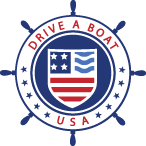All About Vessel Safety Checks (VSC) in the U.S.
The Vessel Safety Check program was first offered in 1947 to verify the safety of motor boats, but today it is available for boats of all types, including small watercraft like canoes and paddle boats.
The Coast Guard Auxiliary selects examiners to give the VSC completely free of charge, and you won’t be punished if your boat isn’t up to standard.
Who can get a free vessel safety check?
Boaters anywhere in the U.S. can get a free vessel safety check. The checks are available for boats under 16 feet, 16-25 feet, 26-39 feet, 40-65 feet, and even those over 65 feet in length.
You can contact the United States Coast Guard online to schedule a free vessel safety check.
Here are just some of the boats that can benefit from a courtesy vessel safety check:
Motorized vessels
- Powerboats
- Personal watercraft (PWCs) or Jet skis
- Pontoon boats
- Houseboats
- Cabin cruisers
- Center console boats
- Bass boats
- Ski boats
Non-motorized pleasurecraft
- Sailboats
- Canoes
- Kayaks
- Rowboats
- Paddleboards
Other types of vessels
- Inflatable boats
- Dinghies
- Airboats
Why any boater can benefit from a vessel safety check
Vessel safety checks are beneficial for all types of recreational boaters, regardless of their experience level. Even seasoned boaters can gain valuable insights and find out their vessels meet all current safety requirements.
The primary goal is to promote boating safety and reduce accidents on the water by verifying that boats are equipped with all necessary safety equipment and follow federal, state, and local regulations. A VSC will:
- Give you peace of mind, as you will be confident your equipment is appropriate and in good condition.
- Help you avoid large fines related to safety standards during inspections by law enforcement.
- Possibly reduce your vessel insurance premiums; consult your agent for more information.
VSCs for boaters who aren’t sure if their boat is up to standard
If you aren’t sure if you boat meets legal safety requirements, you can find out with no risk of punishment. That’s right: you will not be penalized if your boat or equipment are not up to standard. The VSC program is not related to law enforcement. It’s designed to help you avoid getting into trouble!
VSCs for boaters who are confident in their boat and equipment
If you are pretty sure you have all the right equipment and your boat is in good working order, a VSC can confirm it. During the check, the examiner can discuss safety practises, help you learn more about your safety equipment and answer any questions. They can also clarify various federal and state regulations for boating in your area.
Want to learn more about cold water survival, boat fuel management, controlling your boat under various sea conditions or how to report accidents? A VSC can be your door to accessing vital, up-to-date information from a qualified member of the USCG.
Remember, you can also learn everything you need to know about safe boating and get your official state-approved boating license from Drive A Boat USA. Our courses and services are available online, so you can get started right away!
How to schedule a free vessel safety check
The U.S. Coast Guard recommends that all vessel owners get a VSC once a year. Here’s how it works:
- Contact the USCG to schedule a vessel check. A qualified Vessel Examiner will return your call to set up the appointment.
- Get your boat ready by following a boat maintenance checklist from an approved boat safety authority like Drive A Boat USA.
- Attend the scheduled meeting. Ask any questions you may have.
- The official examiner will either inform you of any changes and improvements you need to make to pass the check, or award you a VSC decal confirming that your vessel is up to standard.
- Set a reminder to schedule another check for next year at the same time.
Vessel safety at Drive A Boat USA
Owning a boat is a real privilege, but it also comes with responsibilities. As the captain, you are in charge of keeping your vessel and passengers safe, and obeying all boating safety laws when out on the water.
When you get a free vessel safety check, the examiner will verify your boat registration, life jackets, Hull Identification Number, distress signals, fire extinguishers and navigation lights.
Do you have the right equipment to save lives and summon help? Does your boat meet current state and federal safety standards?
Find out now! Get your state-approved boating license and learn about safe boating across the U.S. with Drive A Boat USA.

